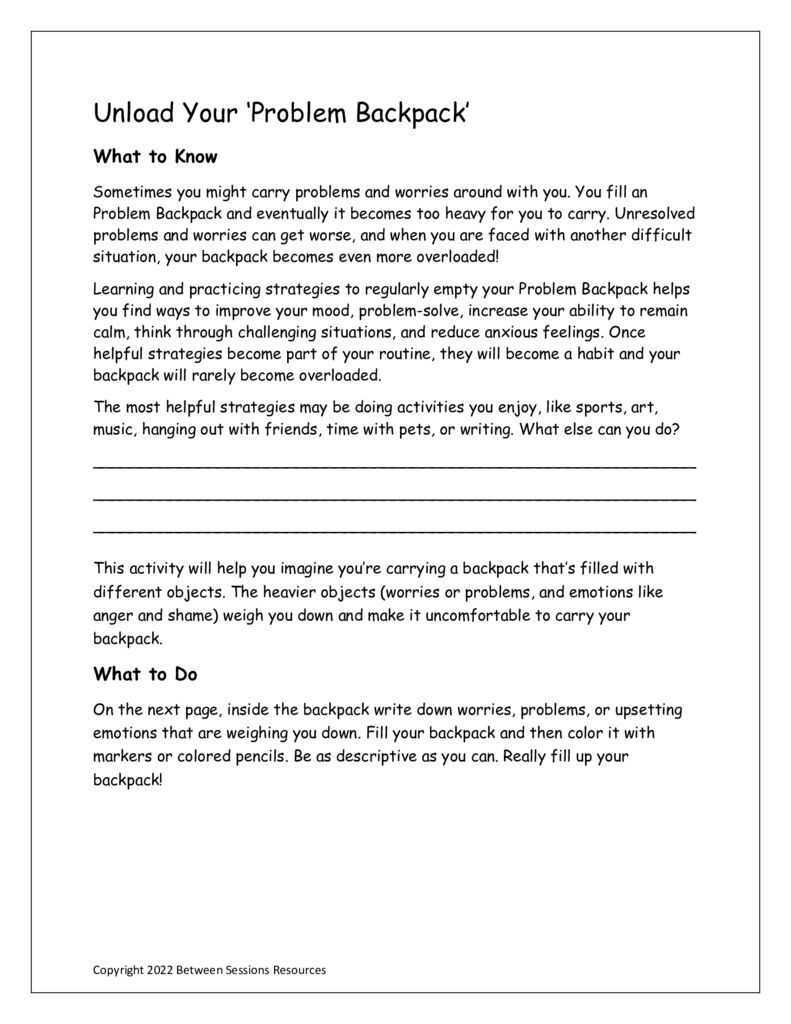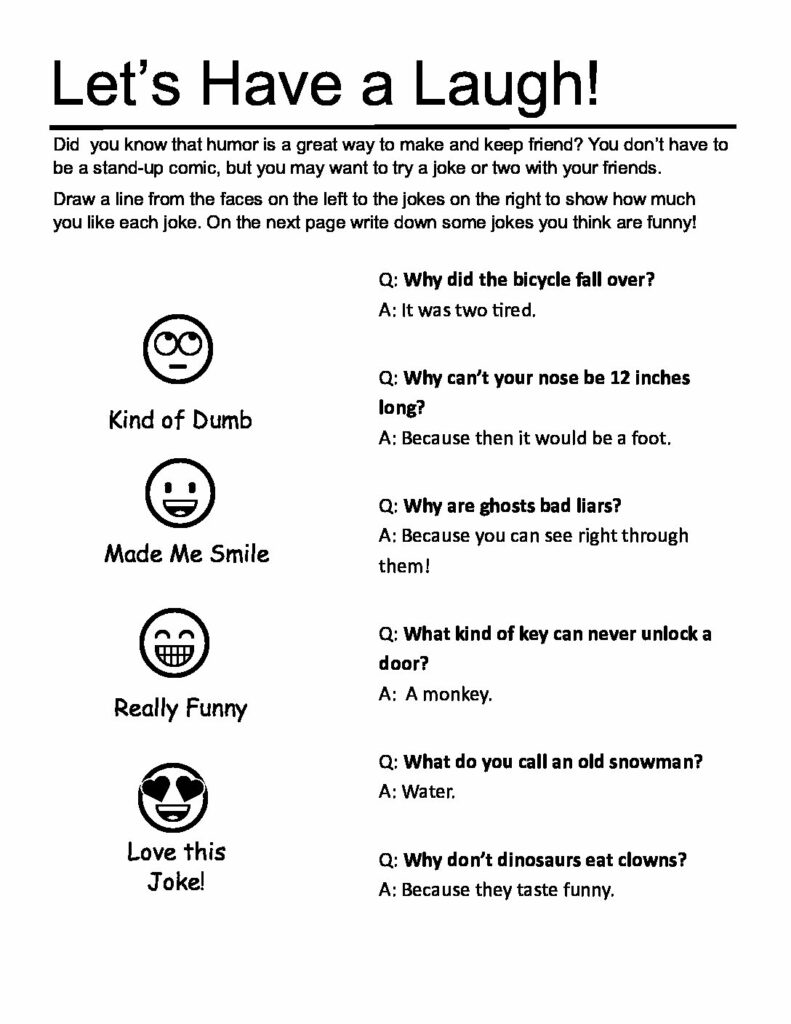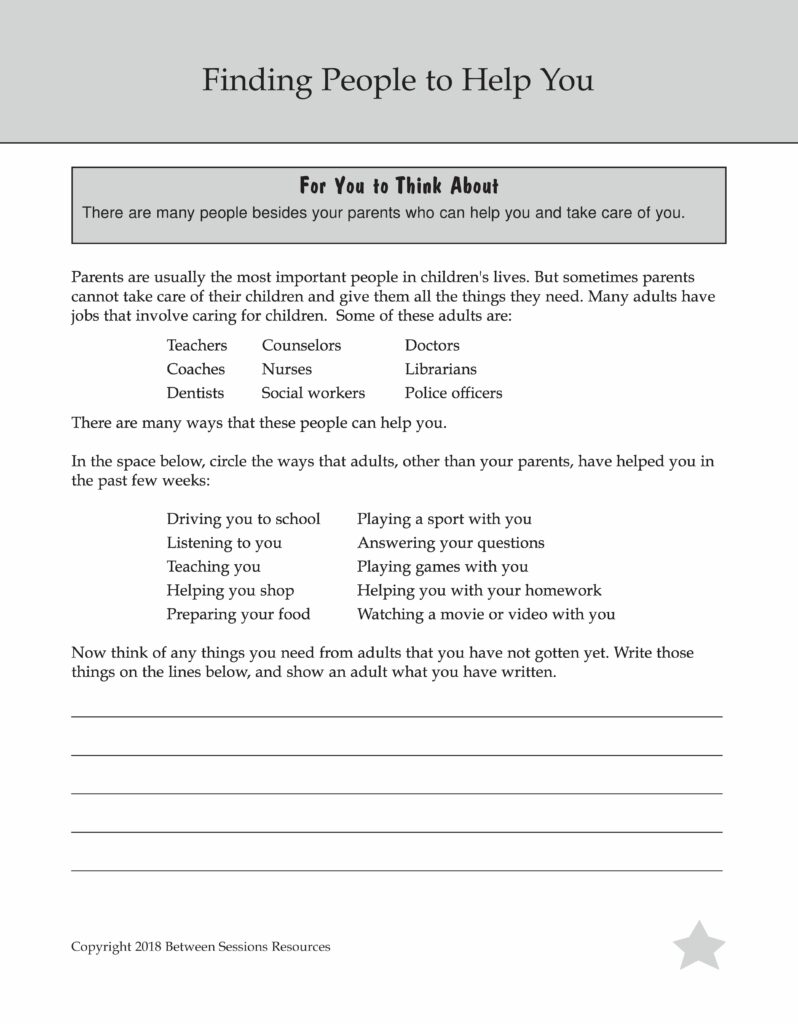This worksheet asks kids and teens to think about the problems, worries, and upsetting emotions that are “weighing them down.” It uses the metaphor of a Problem Background to help kids and teens identify the thoughts and feelings that are causing them problems and how to let them go. (0622 , depression, anxiety)
Humor is an important emotional intelligence skill and an important part of making and keeping friends. This worksheet asks children to jokes according to which are funny and which are not. It also asks them to write down jokes that they think are funny. (0222, humor, fun, play, emotional intelligence, social skills)
This worksheet helps children learn to match different feelings with different facial expressions. (0621. Feelings, emotional communication, empathy)
This Solution-Oriented Therapy technique is designed to help motivate people to solve their problems. (problem-solving, solution-oriented therapy, resilience, 0221)
These cards remind people to think about others and look for opportunities for random acts of kindness. (empathy, social connection, 0819)
This packet includes seven worksheets to help children talk about their the issues that are bothering them. (0619, CBT)
This worksheet is designed to encourage resiliency in children. It reminds them that even when times are difficult, with lots of things changing around them, they still have inner strengths. (0319)
Create this paper “Fortune Teller” in minutes for a great way to get kids talking about positive emotions.
(Emotional intelligence, positive psychology, emotional communication, 1218)
This worksheet is designed to help children see that there are many adults around to help them in times of need. It asks children to think about the people around them (teachers, counselors, etc.) who can give them support and to identify specific times they might seek adult guidance. (resilience, 1118)
There are 13 Feelings Flash Cards representing 12 feelings and 1 “blank” face for adults or children to add their own feelings. You can make as many copies of the blank card as you like to add additional feelings. The cards come with discussion questions that can be used to begin conversations that spur emotional intelligence. (0218, depression, anxiety, communication)










